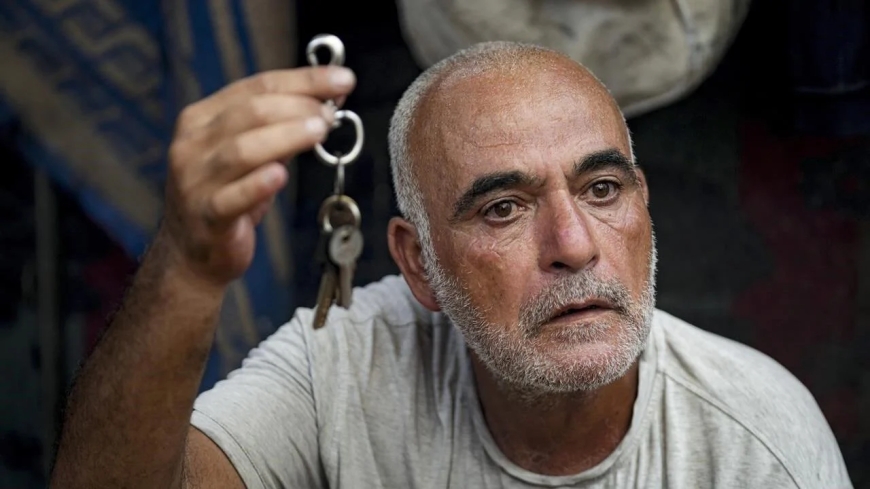Symbolic House Keys Hold Weight Amid Gaza's Relentless Displacement Crisis
In the turbulent landscape of Gaza, where conflict has forced families to repeatedly flee their homes, house keys have taken on profound symbolic significance. For Palestinians like Hassan Nofal, who has been uprooted multiple times amidst Israeli bombardments, these keys represent both a connection to lost homes and a fervent hope for return.

In the turbulent landscape of Gaza, where conflict has forced families to repeatedly flee their homes, house keys have taken on profound symbolic significance. For Palestinians like Hassan Nofal, who has been uprooted multiple times amidst Israeli bombardments, these keys represent both a connection to lost homes and a fervent hope for return.
Nofal, a 53-year-old father of six, keeps two sets of keys close at all times. One belongs to his grandparents' house in what is now southern Israel, a place his family was expelled from in 1948 and has never been able to revisit. The other set unlocks his own house in northern Gaza, from which he was forced to flee during the latest Israeli military campaign.
"Each time we move, these keys remind us of what we've lost," Nofal said. "If my house key becomes just a memory, I feel like I have lost everything."
Since October, when conflict escalated following Hamas' attack on southern Israel, nearly 1.9 million Palestinians out of Gaza's 2.3 million pre-war population have been displaced. Many, like Nofal and his family, have endured multiple displacements, seeking safety in temporary shelters across the strip.
The journey of displacement has been marked by continual upheaval. Families move from one makeshift shelter to another, navigating cramped conditions and scarce resources. Basic necessities like water, food, and medical care become constant challenges. Each relocation brings fresh hardships, from adapting to new environments to coping with emotional trauma and loss.
Despite assurances from Israel that displaced Palestinians will eventually return home, the reality remains uncertain. Many homes have been severely damaged or destroyed, leaving families in a state of prolonged displacement and uncertainty.
In Muwasi, a designated "humanitarian safe zone" on Gaza's Mediterranean coast, conditions are dire. Displaced families live in makeshift tents made from plastic sheeting and blankets, amidst unsanitary conditions with limited access to clean water and essential supplies. The promise of safety is marred by sporadic airstrikes that have claimed lives within the supposedly protected area.
Ongoing humanitarian efforts strive to provide aid and support to displaced families, yet the scale of need often outstrips available resources. International organizations and local initiatives work tirelessly to alleviate suffering and provide essential services to those most affected by the conflict.
For families like Nofal's and many others in Gaza, the keys to their homes serve as a poignant reminder of their enduring attachment to their land and their unwavering hope for a peaceful resolution to the conflict. Despite the hardships they face, their resilience and determination to preserve their identity and heritage remain steadfast amidst the ongoing turmoil.
As the international community continues to grapple with the complexities of the Gaza crisis, the plight of displaced families underscores the urgent need for sustainable solutions that prioritize humanitarian relief, uphold human rights, and strive towards lasting peace in the region.













































